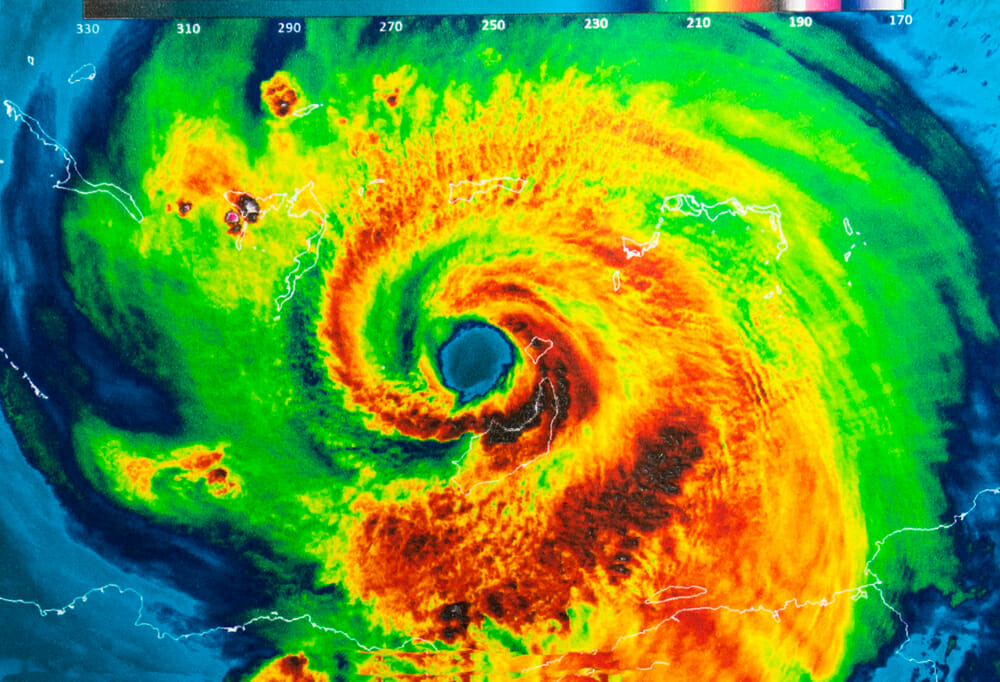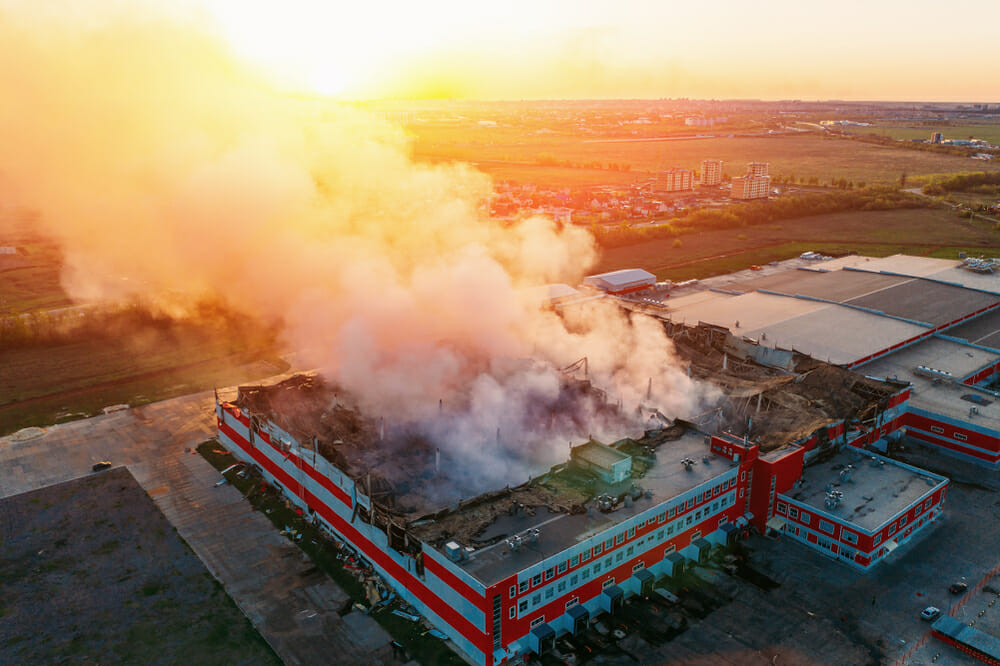Introduction
Has accessing the full potential of your insurance claim payout after sizeable property damage due to fire, hail, hurricane, tornado, or flood ever felt like a maze? If so, this may be due to being unfamiliar with a pivotal player in the insurance process – a loss assessor. Especially when we talk about a state like Texas, the role of a loss assessor in managing your claim after storm damage becomes even more crucial.
Brief Overview of the Role of a Loss Assessor
A loss assessor, a representative hired by policyholders like you, takes on the complex process of managing your insurance claim. Their role spans from assessing the extent of damage, estimating the costs for repair, to negotiating with insurance companies to ensure a fair and prompt settlement. Be it damage due to severe weather conditions like a hailstorm, tornado, hurricane, or a fire, they’re equipped to handle these insurance claims and guide you through to fair recovery.
Importance of Hiring a Loss Assessor in Texas
In Texas, the diverse weather conditions and related challenges make the role of a loss assessor even more significant. The handling of fire, hail, hurricane, tornado, and flood damage claims all demand different expertise, of which a loss assessor is well versed. Hiring a loss assessor in Texas, USA not only helps you navigate these intricate processes, but adds an invaluable reassurance that you will get the fullest compensation possible.
To help you navigate the process of hiring a loss assessor, here’s a brief structured snippet to address the essentials you should consider:
- Experience: The depth of their work in handling different types of property damage claims, especially in Texas.
- Calculation Process: Their method of calculating the full settlement amount.
- Negotiation Tactics: How they plan to maneuver the negotiation process with the insurance company.
- Client Feedback: Request for references or reviews from previous clients.
- Fee Structure: Understanding the cost of hiring their services.

Coming up next, we’ll be addressing these points in detail and providing some essential questions to ask before hiring a loss assessor to make this process less daunting. Stay with us on this journey to recovery.
Understanding the Role of a Loss Assessor
When property damage occurs, whether due to fire, hail, hurricane, tornado, or flood, it’s crucial to have someone on your side who understands the complexity of the claims process. This is where a loss assessor comes in. But what exactly does a loss assessor do, and how does their role differ from that of an insurance adjuster?
Difference Between a Loss Assessor and an Insurance Adjuster
The first thing to understand is the difference between a loss assessor and an insurance adjuster. An insurance adjuster is an individual who works for the insurance company. Their primary role is to evaluate an insurance claim to determine the insurer’s liability.
On the other hand, a loss assessor, also known as a public adjuster, works exclusively for you – the policyholder. They are licensed professionals hired to assist you in navigating the claims process, ensuring that you receive the maximum payout. Unlike insurance adjusters, public adjusters, like us at Insurance Claim Recovery Support, prioritize your interests and aim to secure a fair claim settlement.
The Scope of Work of a Loss Assessor
The role of a loss assessor is multi-faceted. They handle a range of responsibilities, including a detailed examination of your insurance policy, a comprehensive appraisal of damages, and negotiations with your insurance company. They can also help you understand your coverage and any limitations or exclusions that may apply.
A loss assessor will guide you through every step of the process – from assessing the damage to your property, documenting it accurately, submitting the claim, and finally to negotiating the settlement. They will ensure that all aspects of the claim are handled promptly and professionally, saving you time and stress.
How a Loss Assessor Can Help You in Texas
In Texas, the role of a loss assessor becomes even more critical due to the state’s varied weather conditions and associated risks. Fire, hail, hurricane, tornado, and flood damage claims are common, and navigating these complex processes can be challenging for policyholders.
A loss assessor, like us at Insurance Claim Recovery Support, steps in to assist policyholders with assembling and submitting claims, negotiating settlements, and ensuring the fullest compensation possible. We are experienced in handling fire, hail, flood, wind, water, freeze, hurricane damage, and other storm-related property damage insurance claims for residential, multifamily, and apartment complex policyholders.
In conclusion, understanding the role of a loss assessor can make a significant difference when dealing with a property damage claim. They are advocates for the policyholder and work to ensure you receive a fair and prompt settlement. In the following sections, we’ll delve deeper into the important questions you should ask before hiring a loss assessor in Texas, USA.
Question 1: What is Your Experience and Expertise in Handling Property Damage Claims?
Importance of Experience in Handling Property Damage Claims
When dealing with insurance claims, particularly those involving property damage, experience plays a crucial role. An experienced loss assessor will have firsthand knowledge of the intricacies of insurance policies, claims processes, and negotiations with insurance companies. They will be able to navigate the complex landscape of insurance claims, avoiding common pitfalls and ensuring a smoother and more positive claim process for you, the policyholder.
Types of Property Damage Claims a Loss Assessor Should Handle
In Texas, a loss assessor should be well-versed in handling various types of property damage claims. This includes fire loss claims, hail claims, hurricane claims, tornado claims, water loss claims, wind claims, business interruption claims, flood claims, and appraisal claims. Each type of claim has its unique complexities and requires a specific approach for successful resolution. For instance, Insurance Claim Recovery Support has extensive experience in dealing with these diverse claims, ensuring that policyholders receive the settlement they deserve.
Case Study: How Experience Matters in Settling Claims
Consider the case of D.C. Hogan & Associates, a professional service provider specializing in flood, fire, and water damage claims. One of their clients praised their expertise, stating that their “expertise is way beyond the fee you pay to hire their services.” This clearly indicates how crucial it is to hire a loss assessor with a solid track record and extensive experience.
In conclusion, before hiring a loss assessor in Texas, USA, inquire about their experience and expertise in handling property damage claims. Their answers will provide you with valuable insights into their competence and reliability, helping you make an informed decision. The right loss assessor can make a significant difference in the outcome of your insurance claim.
Question 2: How Do You Calculate the Full Settlement Amount?
Understanding the Calculation Process
When it comes to insurance claims, calculating the full settlement amount is a critical step. A loss assessor in Texas, USA, should be able to explain this process in detail, providing you with a clear understanding of how they arrive at the final figure. The calculation should include a complete evaluation of the loss, reflecting the entire legal value. Every aspect of your claim should be recorded and supported, including both the cost of repairs and any associated expenses.
Importance of Accurate Calculation in Claim Settlement
The accuracy of the calculation is crucial for a fair settlement. A miscalculation can lead to underpayment, affecting your ability to restore your property to its original state. The Insurance Claim Recovery Support team, for example, emphasizes the importance of having a set figure in mind for your claim settlement. This figure should aim to get as much as you can, but it should be slightly higher than reasonable.
How a Loss Assessor Ensures Maximum Settlement
A competent loss assessor will use their expertise and experience to ensure you receive the maximum settlement. They achieve this by properly filing your claim under the most beneficial coverage per the policy, expediting the claim filing process, and working diligently to maximize the indemnification to best suit your needs. They also make claims for recoverable depreciation and ensure timely claims payments.
To illustrate, the Insurance Claim Recovery Support team has a proven and streamlined insurance claim process, which they use to guide policyholders effectively. If you’re looking for a loss assessor in Texas, USA, ensure they have a similar process and commitment to their clients.
Next, we’ll cover the negotiation process and how a loss assessor can use their skills to ensure a fair settlement. Their negotiation strategies can make a significant difference in the outcome of your claim, so it’s an aspect you can’t afford to overlook.
Question 3: How Do You Handle Negotiations with Insurance Companies?
When it comes to insurance claims, negotiation is often a key part of the process. As a policyholder, you’ll want to ensure that the loss assessor you hire has the necessary skills and strategies to effectively negotiate with insurance companies on your behalf. Let’s take a closer look at the role of a loss assessor in these negotiations and the strategies they might use.
The Role of a Loss Assessor in Negotiations
In the context of an insurance claim, negotiations involve discussions between the policyholder (or their representative) and the insurance company to reach a settlement that both parties can agree on. As a representative of the policyholder, a loss assessor’s role in these negotiations is to advocate for the policyholder’s interests and work towards a fair and favourable settlement.
By using their knowledge and expertise, a loss assessor can identify any discrepancies in the insurance company’s assessment of the claim and challenge them. This can include issues related to the scope of the damage, the cost of repairs, or the interpretation of the insurance policy. Navigating these discussions can be complex, but a skilled loss assessor can use their expertise to effectively argue the policyholder’s case.
Strategies Used by Loss Assessors in Negotiations
A good loss assessor will come well-prepared to the negotiation table with supporting evidence. This includes detailed records and documentation of the damage, as well as a full calculation of the settlement amount based on a meticulous assessment of the policy and the loss. They will know the bottom line and will be ready to counter any low initial offers from the insurance company.
Another key strategy is to get the settlement offer in writing and read the fine print carefully. This ensures that the policyholder is fully aware of what they’re agreeing to and can help avoid any potential misunderstandings down the line.
Case Study: Successful Negotiation Leading to Fair Settlement
To illustrate the importance of effective negotiation, let’s take a look at a case from our own experience here at Insurance Claim Recovery Support. We were called upon to help a Texas-based policyholder who had suffered significant property damage. The insurance company had offered a settlement that was far below what the policyholder believed they were entitled to.
Our team meticulously assessed the policy and the loss, calculated a full settlement amount, and prepared a robust case for negotiation. We countered the insurance company’s initial offer and, through a series of negotiations, managed to secure a settlement that was significantly higher than the original offer, ensuring that our client received the fair compensation they deserved.
In conclusion, when hiring a loss assessor in Texas, USA, it’s crucial to ask about their negotiation strategies and their track record in securing fair settlements for their clients. Their ability to effectively handle these negotiations can make a significant difference in the outcome of your claim.
Question 4: Can You Provide References or Reviews from Previous Clients?
Importance of Client Reviews and Testimonials
In the process of hiring a loss assessor in Texas, USA, an often overlooked but crucial step is to ask for references or reviews from previous clients. These testimonials serve as a valuable resource that can give you a glimpse into the assessor’s past performance and their ability to deliver satisfactory results.
Reviews and testimonials offer first-hand information about the assessor’s professionalism, communication skills, and their ability to manage claims effectively. More importantly, they can provide insight into the assessor’s success rate in getting clients the settlements they deserve.
At Insurance Claim Recovery Support, we value transparency and are proud to share our client testimonials. These reviews attest to our commitment to excellence, professionalism, and our successful track record in claims settlement.
What to Look for in Client Reviews
When evaluating client reviews and testimonials, look for details about the loss assessor’s responsiveness, their expertise in handling similar claims, and their success in claim settlement.
Pay attention to how the assessor handled challenges or disputes that arose during the claim process. Did they advocate effectively for the client? Were they able to negotiate a fair settlement? These are crucial details that can help you make an informed decision.
Also, consider the overall satisfaction of the client. Did they feel that the assessor represented their interests effectively? Were they happy with the service they received? Understanding the client’s overall experience can help you set realistic expectations for your own claim process.
How Positive Reviews Indicate a Reliable Loss Assessor
Positive reviews and testimonials from previous clients indicate a reliable and competent loss assessor. They are a testament to the assessor’s ability to deliver results and their commitment to client satisfaction. A loss assessor with consistently positive reviews is likely to provide excellent service and work diligently to ensure you receive a fair insurance settlement.
In one of our client testimonials, a client shared their experience of how we helped them navigate a complex claim process and secured a settlement that was double the original amount offered by the insurance company.
Choosing a loss assessor is a crucial decision that can significantly impact the outcome of your insurance claim. By asking for references and reviewing client testimonials, you can gain valuable insights to guide your decision and ensure you hire a loss assessor who is well-equipped to handle your claim.
Question 5: What is Your Fee Structure and How is it Calculated?
One of the final yet essential questions to ask a potential loss assessor in Texas, USA, is about their fee structure. Understanding how they calculate their fees and what these fees include can help you budget for their services and avoid any surprise costs.
Understanding the Fee Structure of a Loss Assessor
Typically, loss assessors work on a contingency fee basis. This means that their fee is a percentage of the claim payments they recover for you. At Insurance Claim Recovery Support, for example, we only get paid if you get paid. This arrangement aligns our interests with yours – we are motivated to recover the maximum possible settlement because our compensation depends on it.
How Fees are Calculated and What They Include
The percentage charged by loss assessors can vary, but it’s regulated by state law in Texas. For example, loss assessors can charge up to 10 percent of the total gross settlement for a claim. For supplemental claims, the fee limit is typically the lessor of either 20-25% percent of new money or 10% of the gross settlement, less the deductible. This fee structure provides a helpful context to understand the charges in the industry.
In addition to understanding how the fees are calculated, it’s also crucial to ask what services are included in this fee. At Insurance Claim Recovery Support, we provide comprehensive services from documenting damages to negotiating with insurance companies, all included in our fee.
Why It’s Worth Paying for a Loss Assessor’s Services
While the idea of paying a fee may seem daunting, especially when dealing with property damage and insurance claims, the value a skilled loss assessor delivers often far outweighs their cost. They bring expertise to the table that can help you avoid common pitfalls, negotiate more effectively, and ultimately secure a higher settlement than you might achieve on your own. As our client testimonials attest, many property owners find that hiring a loss assessor significantly increases their claim payout, making the fees a worthwhile investment.
When you’re dealing with property damage and a potentially complex insurance claim, a loss assessor can be a valuable ally. By asking these essential questions and understanding what to look for, you can find a loss assessor who will work tirelessly on your behalf to secure the best possible outcome for your claim.
Conclusion
Recap of the Importance of Hiring a Loss Assessor in Texas
In the wake of property damage, the task of navigating complex insurance claims can be daunting, especially in a state like Texas which frequently experiences extreme weather conditions such as storm, hail, and fire. A loss assessor can make this journey significantly easier and more successful. Their expertise in handling property damage claims, calculating full settlement amounts, negotiating with insurance companies, and their commitment to your interests can make a world of difference in securing a fair settlement for your claim.
Final Thoughts on Choosing the Right Loss Assessor
Choosing the right loss assessor in Texas, USA is about more than just ticking boxes. It’s about finding an advocate who will stand by your side, fighting for your best interests and helping restore your peace of mind. A good loss assessor should provide transparency, whether it’s about their fee structure or their processes. Reviews and testimonials from previous clients can provide valuable insights into a loss assessor’s reliability and effectiveness.
We at Insurance Claim Recovery Support understand the importance of having a trusted partner in navigating insurance claims. We are committed to representing our clients’ best interests, providing professional insurance claim help that you can count on. Whether it’s a fire, hail, hurricane, tornado, or flood damage claim, our experienced team is ready to assist.
For more detailed insights, you can explore our blog or reach out to us for a free claim evaluation. No recovery, no fee – that’s our commitment to you.

When it comes to insurance claims, it pays to have an expert in your corner. Make the right choice, and let a professional loss assessor guide you through the process.







